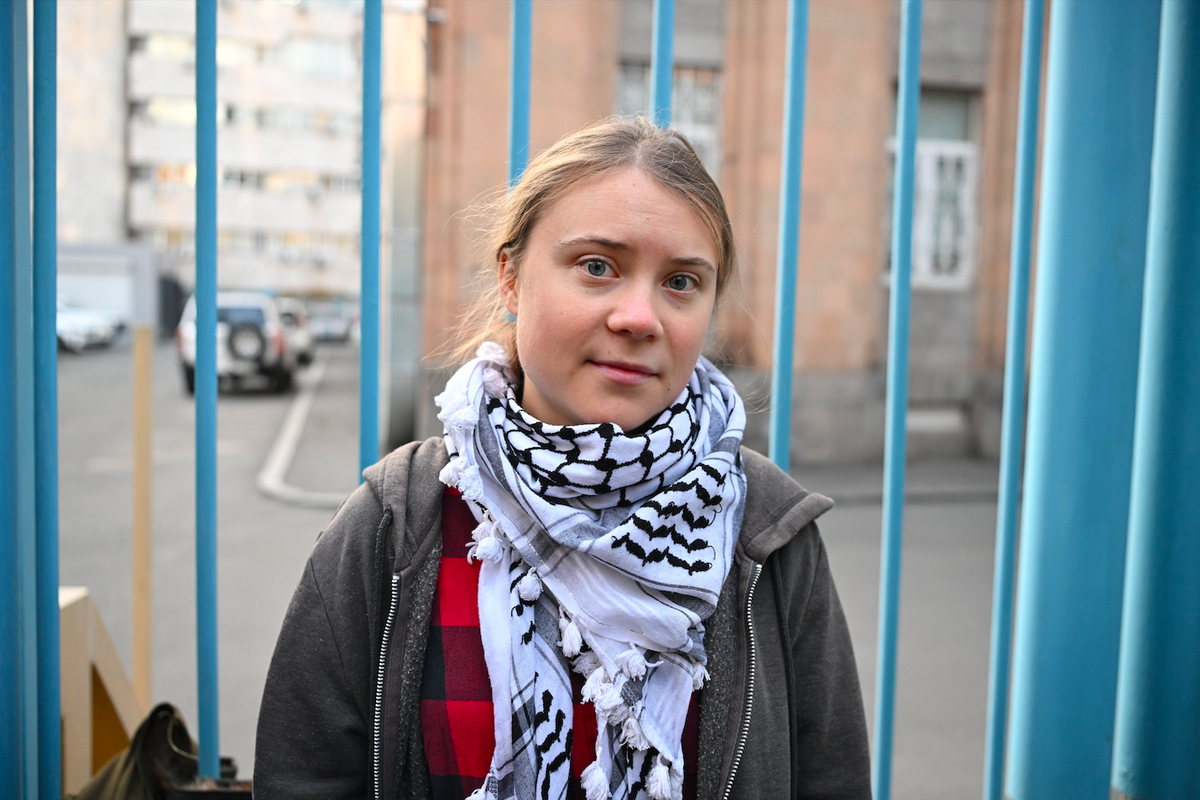Israeli authorities have yet to comment directly on Thunberg’s specific allegations. Photo credit: Asatur Yesayants/Shutterstock
Climate activist Greta Thunberg, 22, was one of the international activists who joined the platoon heading to Gaza last month. The boats carrying humanitarian aid and activists were intercepted by the Israeli navy before reaching their destination.
Israel has imposed a naval blockade of the Gaza Strip for years, citing security concerns over possible arms smuggling. Thunberg and other activists were detained after refusing orders to turn back. Reports said she was held in Israel for several days before being deported to Sweden.
Sweden acknowledges concerns
Documents obtained guardian The Swedish Ministry of Foreign Affairs has expressed concern about the conditions of Thunberg’s detention. In particular, the department relayed her claims that detention facilities were unsanitary and unfit for purpose.
Thunberg’s claim
“Cells infested with bed bugs”
Thunberg reportedly told Swedish authorities that her cell in Israel was “infested with bedbugs.” She said she suffered rashes and bites consistent with exposure to bed bugs while in custody. Activists said they were forced to sleep in unsanitary conditions with inadequate bedding and little insect infestation.
food and water shortage
As well as concerns about insects, Thunberg claimed she was also denied adequate food and clean drinking water. She described periods in which she had to endure starvation and claimed that detainees had no access to basic amenities and were forced to sit for long periods on hard, uncomfortable floors.
physical and mental strain
Ms Thunberg told Swedish authorities that poor sanitary conditions, lack of food and prolonged confinement had combined to cause her significant suffering. The report said she experienced physical discomfort, skin rashes and increased anxiety while in custody.
International response
Swedish government reaction
Sweden’s Foreign Ministry has not officially confirmed the full details of Thunberg’s testimony, but has confirmed that it is in contact with her and monitoring her situation. The ministry said it takes the allegations of abuse very seriously and has raised the matter with the relevant Israeli authorities.
Support from activists
Human rights groups and climate change activists have expressed concern about the handling of the allegations. Supporters argue that regardless of Israel’s position on the flotilla, the conditions described violate basic international standards regarding the welfare of detainees. Amnesty International has previously criticized conditions in Israeli camps, citing overcrowding and inadequate medical care.
Israel’s position
Israeli authorities have yet to comment directly on Thunberg’s specific allegations. But authorities have consistently defended the detention of the flotilla participants, describing the blockade as a necessary safety measure. In past lawsuits, Israel has denied allegations of systematic abuse, but acknowledged that its facilities are often under pressure due to large numbers of detainees.
Ms. Thunberg’s extensive activities
From climate change to human rights
Thunberg rose to global fame as a teenager through her Fridays for Future school strikes, and became a leading voice in climate change activism. In recent years, her focus has expanded to include issues of justice, human rights, and solidarity with oppressed groups. Her decision to join the Gaza flotilla reflects this expanded platform and aligns with her call for global accountability and humanitarian aid.
Past arrests and protests
This is not the first time Ms Thunberg has faced arrest or detention. She has previously been detained during non-violent protests in Germany and has been arrested in the UK, primarily in connection with climate demonstrations. However, her reports of harsh conditions in Israel present a marked contrast to her previous experience in detention in Europe.
wider impact
Focus on detention practices
The allegations have renewed focus on Israel’s treatment of detainees, particularly foreign activists. Verification of bed bug infestations, food shortages and prolonged discomfort could raise questions about compliance with international standards such as the UN’s Mandela Rules for minimum treatment of prisoners.
political influence
For Israel, the claims risk inciting international criticism at a sensitive time, given the increased global attention to the humanitarian situation in Gaza. For Sweden, the situation poses a diplomatic challenge, balancing the protection of its high-profile nationals with broader bilateral relations.
Thunberg’s influence on the movement
For Thunberg herself, the ordeal will amplify her activist voice. Activists argue that her willingness to endure detention in support of Palestinians demonstrates her commitment to global justice beyond environmental issues. But critics have accused her of politicizing her platform and aligning herself with causes hostile to Israel.
Greta Thunberg’s allegations of inhumane treatment in Israeli custody have sparked anger and renewed debate over the conditions of her detention in the country. Israeli authorities have not confirmed her claims, but details reported to the Swedish Foreign Ministry paint a disturbing picture. A young activist endures starvation, a bed bug infestation, and the psychological stress of participating in a protest voyage.
Regardless of whether Israel officially addresses the allegations, Thunberg’s testimony has already attracted international attention, drawing attention not only to her personal ordeal but also to wider issues such as detention conditions, humanitarian solidarity and the ongoing blockade of Gaza.








